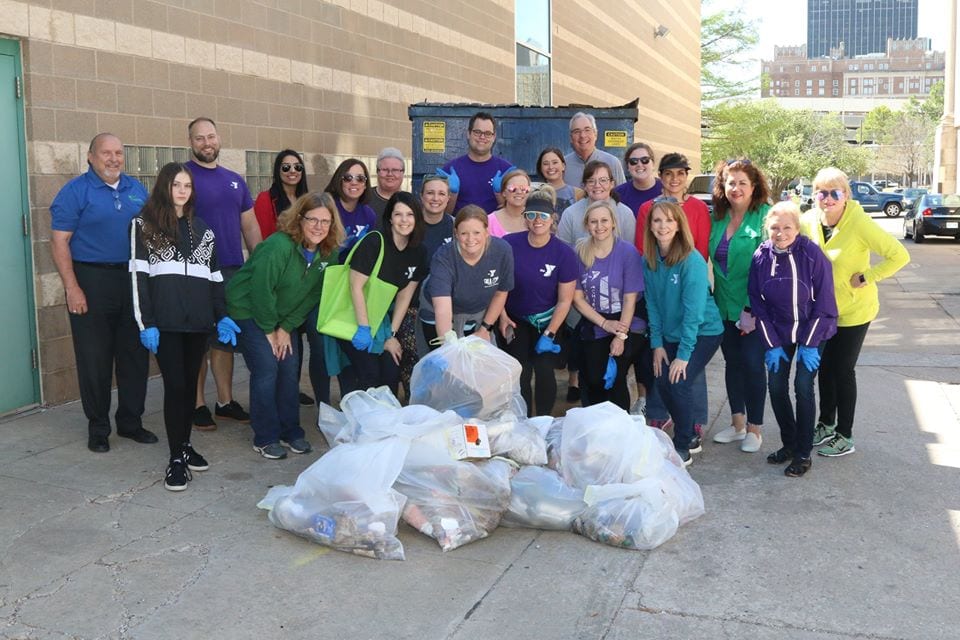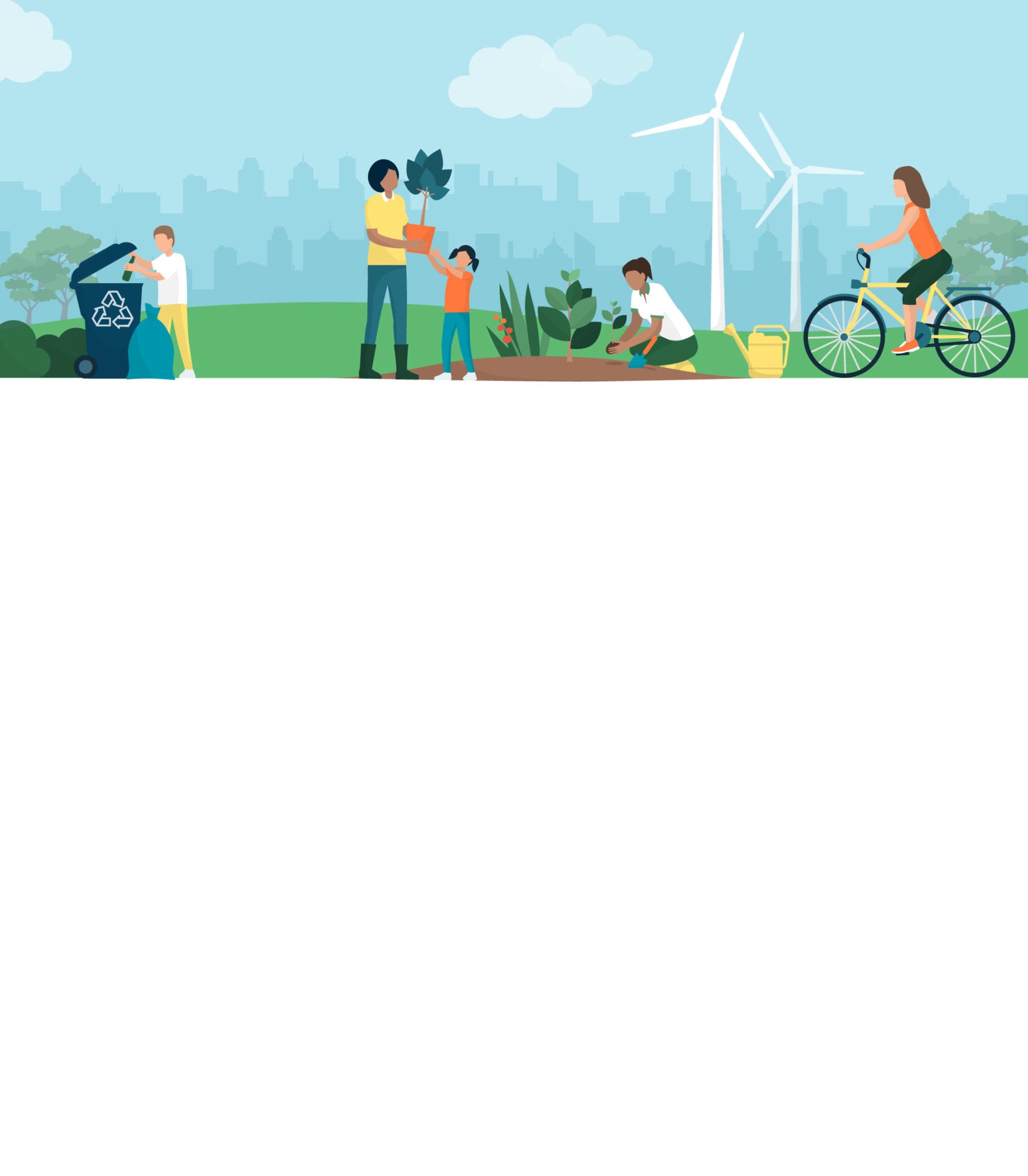Pollution and humanity’s impact on the planet are continuously in the news, and, for some, the big picture may seem overwhelming. However, rather than saving the whole world individually, anyone can take baby steps toward sustainability to ease burdens on local facilities and save consumers a bit of money.
“The goal when people talk about moving into a more sustainable lifestyle is always to start where it’s the easiest,” says Corey Wren Williams of Sustainable Tulsa, a nonprofit promoting social responsibility, economic vitality and environmental stewardship. “Where is your passion point? Because if it’s something you’re interested in, you’re going to be more vested. Making those changes are easier. And it starts with just one, and then you can move on to other things rather than trying to do everything at once.”
A good place to start is the kitchen. To reduce plastic waste, one can use reusable shopping bags, switch to glass containers to store leftovers, and eliminate single-use plastic bottles.
“My family recently switched because we saw that we were using a lot of plastic wrap and that was a way to reduce it,” Williams says. “It’s just a matter of taking a look around your kitchen and taking stock of what you’re doing and how you’re doing it.”
Reducing organic waste, which winds up in landfills, through composting is another simple step that might seem like a mountain to some. As with the kitchen, people can start small, Williams says.
That requires an outdoor space dedicated to composting, which can be as easy as placing organic waste into a neat pile. Williams says composting containers can be used for those who don’t want mounds in their backyards or have neighbors who object.
“Composting is so simple,” she says. “There are some [composting containers] that are picky and don’t want cooked foods in there, but, as long as you’re mixing it with leaves and turning it, you can pretty much put anything in there but meat and dairy.”
Williams says growing vegetables is another option because it eliminates trucking food from farms to stores.
“Herbs are easy to grow for even the most inexperienced gardeners,” she says.
Making sure a home operates efficiently also reduces carbon footprints and saves money. Programmable thermostats and energy-efficient windows lower energy use, says T.O. Bowman, the City of Oklahoma City’s sustainability manager.
“When you look at your home’s thermal envelope, are there things you can do to improve it? In most cases, there is room for improvement, and those sort of baby steps can add up to saving money,” he says.
Bowman says low-flow faucets, reduced shower times and xeriscaping (which requires little or no water) are other methods of sustainability and cost savings.
“If you have an irrigation system in your yard, make sure it’s functioning properly,” he says.

Recycling
Recycling often requires sorting plastic and other items from regular trash. In 2018, Oklahoma City made large carts available to all residents to recycle paper, plastics, glass, aluminum, steel and cardboard. Tulsa has had a similar system for many years.
The programs keep recyclable materials out of landfills and other disposal systems. See those cities’ websites for restrictions on what can go into the recycling carts.
OKC residents can drop off hazardous household waste at a dedicated facility for items like used batteries, motor oil and paint. A person dropping off 10 items can choose some usable items as part of the city’s exchange program.
“We definitely don’t want people putting things like used motor oil in a creek or storm drain, so we’re extending the life of our landfill, and it’s free,” says Raymond Melton, OKC’s superintendent of environmental protection. “You don’t even have to get out of your car when you bring items in.”
For those wanting to compost, the Oklahoma Cooperative Extension Service has offices in all 77 counties and provides tips and advice in person and online.
The Oklahoma Department of Central Services also has recycling tips online. In most counties, those items can be turned in at recycling centers. In Tulsa County, the MET Recycling Center has 12 locations and takes plastic, aluminum and hazardous waste. Most locations also offer compost bins and worms.
Oklahoma utilities offer energy audits for homes and rebates for high-efficiency appliances. ONG, OG&E and PSO have details on their websites.
“Those companies have received national recognition for their programs,” says Montelle Clark, energy director for the Oklahoma Sustainability Network. “For some low- and moderate-income customers, some of these things can be done for free.”
Diet
While committing to a plant-based diet might be too much for some people, those who want to reduce the impact that food has on the environment can buy locally grown or raised products.
“Think about how many miles the food you eat has to travel to get to you,” Williams says. “When you buy local, you cut down on that [carbon] footprint.”
Reducing meat consumption may help the environment. A 2019 study by Oxford University and the University of Minnesota found that eating plant-based meals twice a day could reduce food-related carbon emissions by 60 percent.
Growing your own food is another easy way to shrink your carbon footprint.
“You can save a lot of money and you know where it comes from,” Williams says. “Start small and stick to it. Once you get used to it, you realize that you won’t want to do it any other way.”
Transportation
With low gas prices and high levels of car ownership, carpooling is not as prevalent as it was during the energy crises of the late 1970s and early 1980s. But it remains an option for eco-friendly commuters.
Those looking to carpool can find partners on several apps, including rideshare.com. Oklahoma State University runs a carpooling program through erideshare.com,
which pairs students who want to cut transportation costs. The University of Oklahoma and the University of Central Oklahoma have similar programs.
Tulsa and Oklahoma City have citywide bus routes. Last year, Oklahoma City added Sunday bus service and a $140 million electric streetcar system linking areas adjacent to the city’s core.

Community Service
Taking the ecology fight to the community is another option in making your immediate environment sustainable. Many cities have community cleanup events.
In Edmond, the Arcadia Lake Sweep brings people together for food, fun and picking up trash every spring to help keep that area beautiful.
Since 2001, OKC Beautiful has hosted the Litter Blitz; volunteers collected more than 180,000 pounds of trash from city streets in 2018.
Keep Oklahoma Beautiful holds cleanups across the state; they can be found at the organization’s website. The nonprofit also offers a recycling directory for drop-off points.
Keeping trash off the streets can begin at the grocery store by purchasing items with less plastic and using reusable bags to prevent the cashier from asking, “Paper or plastic?”
“A lot of trash comes from products and packaging commonly found at grocery stores,” Williams says. “By reducing your purchases of those types of food and limiting your food waste, that helps keep landfills less full and less plastic waste that finds its way onto streets and into waterways.”























